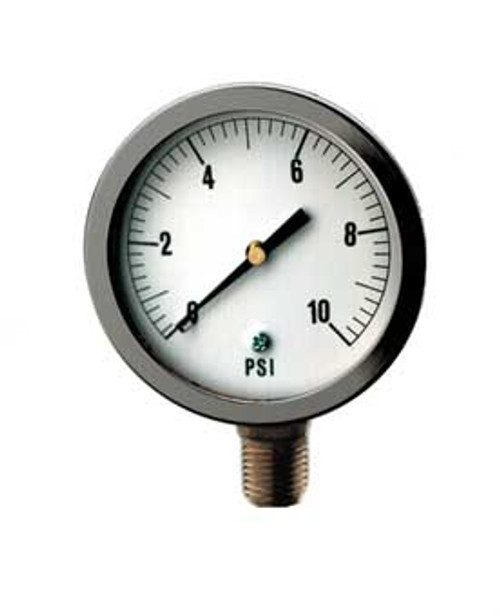Product Overview
Durable and corrosion resistant, our Stainless Steel gauges are made to provide maximum protection in harsh conditions.
- Built-In Over-Range and Under-Range Protection
- Welded Socket to Case on 6"
- Reinforced Sector Improves Accuracy Over Life of Gauge
- 4" & 6" Gauges Come with Removable Stainless Steel Restrictor
Case: AISI 304 Stainless Steel in 2-1/2" (63 mm), 4" (100mm), and 6" (150mm) diameter. Case and socket welded together on 6" gauges.
Fill: Glycerine Filled or Dry, (Dry gauges can be filled). Silicone optional on 4" and 6" gauges.
Ring: AISI 304 Polished Stainless Steel, Bayonet Connection on 25SS, 40SS, and 60SS. Crimped Bezel Ring on 25CS.
Window: Instrument Glass. Safety Glass optional on 4" and 6" gauges
. Socket: AISI 316 Stainless Steel. Ranges over 200PSI on 4" and 6" gauges come with removable Stainless Steel Restrictor. No restrictor on 2-1/2" gauge.
Connection: 1/4" on 2-1/2", 1/2" NPT on 4" and 6", Optional 1/2" F to 1/4" M NPT SS Adaptor.
Bourdon Tube: All Pressure Sensing Elements are AISI 316 Stainless Steel. All 2-1/2" gauges less than 600 PSI, and 4" and 6" gauges less than 1000 PSI range use a C-tube configuration. All other gauges use a spiral tube.
Movement: Stainless Steel.
Pointer: Balanced Black Aluminum. Micrometer adjustable in 25SS, 40SS, and 60SS only.
Dial: White Aluminum with black markings in accordance with ASME B40.1 -2005.
Range Availability: PSI, Metric, and Dual Scales. See information on pg 9.
Process Fluid Temperatures: 212°F (100°C) maximum for standard tube and socket materials.
Overpressure Limits: As a percent of full scale value:
o 30% for ranges up to 870 PSI (60 Bar).
o 25% for ranges from 870 to 1400 PSI (100 Bar).
o 15% for ranges above 1400 PSI (100 Bar).
Overpressure in excess of these values may affect calibration but will not damage the movement due to the mechanical stops.
Temperature Errors: For a normal temperature of 68° F (20° C) approximately +0.3% error for a temperature increase of 18° F and -0.3% error for a temperature decrease of 18° F (10°C). Refer to order matrix for dual scale codes.







